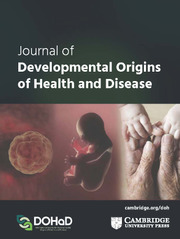
“Hemp seed is rich in polyunsaturated fatty acids (PUFAs), which have potential as therapeutic compounds for the treatment of neurodegenerative and cardiovascular disease.
In this study, we assessed the effects of the intake of hempseed meal (HSM) and PUFAs on oxidative stress, cytotoxicity and neurological phenotypes, and cholesterol uptake, using Drosophila models.
HSM intake was shown to reduce H(2)O(2) toxicity markedly, indicating that HSM exerts a profound antioxidant effect.
Meanwhile, intake of HSM, as well as linoleic or linolenic acids (major PUFA components of HSM) was shown to ameliorate Aβ42-induced eye degeneration, thus suggesting that these compounds exert a protective effect against Aβ42 cytotoxicity.
Additionally, intake of HSM or linoleic acid was shown to reduce cholesterol uptake significantly.
Moreover, linoleic acid intake has been shown to delay pupariation, and cholesterol feeding rescued the linoleic acid-induced larval growth delay, thereby indicating that linoleic acid acts antagonistically with cholesterol during larval growth.
In conclusion, our results indicate that HSM and linoleic acid exert inhibitory effects on both Aβ42 cytotoxicity and cholesterol uptake, and are potential candidates for the treatment of Alzheimer’s disease and cardiovascular disease.”
http://www.ncbi.nlm.nih.gov/pubmed/21331775
“A number of previous studies have shown that polyunsaturated fatty acids (PUFAs) and phytosterols are critically important for human health. Hempseed is a rich source of plant oil, which contains more than 80% PUFAs and 3922-6719 mg/kg of phytosterols (e.g., sitosterol and campesterol). The fatty acids in hempseed oil include a variety of essential fatty acids, including linoleic acid ”
https://link.springer.com/article/10.1007%2Fs10059-011-0042-6
 “The endocannabinoid system (ECS), modulated by metabolites of linoleic acid (LA), is important in regulating cardiovascular function.
“The endocannabinoid system (ECS), modulated by metabolites of linoleic acid (LA), is important in regulating cardiovascular function.
